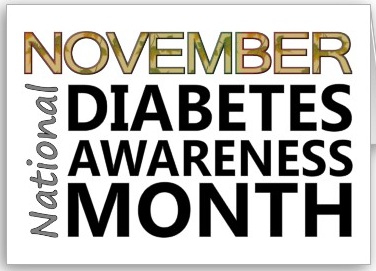 November is National Diabetes Month, and on the 14th, advocates for the disease in the U.S. will join in the commemoration of World Diabetes Day. The National Institutes of Health (NIH) is taking steps to drive awareness and action to prevent diabetes, manage it to improve patient outcomes and reduce complications, and bolster research programs dedicated to newer and better treatments.
November is National Diabetes Month, and on the 14th, advocates for the disease in the U.S. will join in the commemoration of World Diabetes Day. The National Institutes of Health (NIH) is taking steps to drive awareness and action to prevent diabetes, manage it to improve patient outcomes and reduce complications, and bolster research programs dedicated to newer and better treatments.
It is estimated that there are over 30 million diabetics in the US, with an alarming 86 million classified as “pre-diabetic.” The disease is known by some healthcare professionals as a slow killer, as it can cause a number of other serious and potentially fatal complications over the course of one’s lifetime such as heart disease, renal failure, retinal detachment, neurological affectation, impaired healing, and other discomforts. While both types of diabetes are serious health concerns, they can be managed well enough to avoid complications, and type 2 diabetes in particular can be highly preventable.
Type 1 diabetes is when the body is incapable of producing its own insulin, commonly because of an autoimmune response against the pancreas’ insulin-producing beta cells, or from a genetic fault. Type 2 diabetes, the most common diagnosis, is usually a result of improper nutrition and an unhealthy lifestyle that severely affects the body’s ability to produce enough insulin. Gestational diabetes occurs in some pregnant women, and while it usually limits itself to the prenatal period, it can predispose affected mothers and their newborn to developing type 2 diabetes in the future.
The obesity epidemic in the US is causing the number of type 2 diabetes diagnoses to grow proportionately, and is becoming a growing pediatric concern as well. Hundreds of health agencies and organizations across the country and the world are underscoring the need for more safe and effective treatments to curb complications, and more aggressive preventive health interventions.
The NIH’s National Institute of Diabetes and Digestive and Kidney Diseases (NIDDK) recently funded research that revealed losing a decent amount of weight, such as 15 pounds, could greatly reduce one’s risk of developing type 2 diabetes by as much as 58%. Another recent NIDDK project committed to improving the lives of diabetic patients is the funding of a large-scale clinical trial on 4 drugs, in combination with metformin, a commonly prescribed glucose-lowering medication, designed to determine the most beneficial combination regimen for type 2 diabetes patients. Large-scale studies such as these have a substantial impact on the biomedical community, and would not be possible without support from the NIH.
U.S. President Barack Obama said in his proclamation for National Diabetes Month that while finding better solutions for diabetes is one of the nation’s top health priorities, it is fundamental for everyone to do their part in managing their own health and that of friends and family. Eating right, exercising, and quitting smoking will make all the difference in ensuring a brighter future for everyone.


